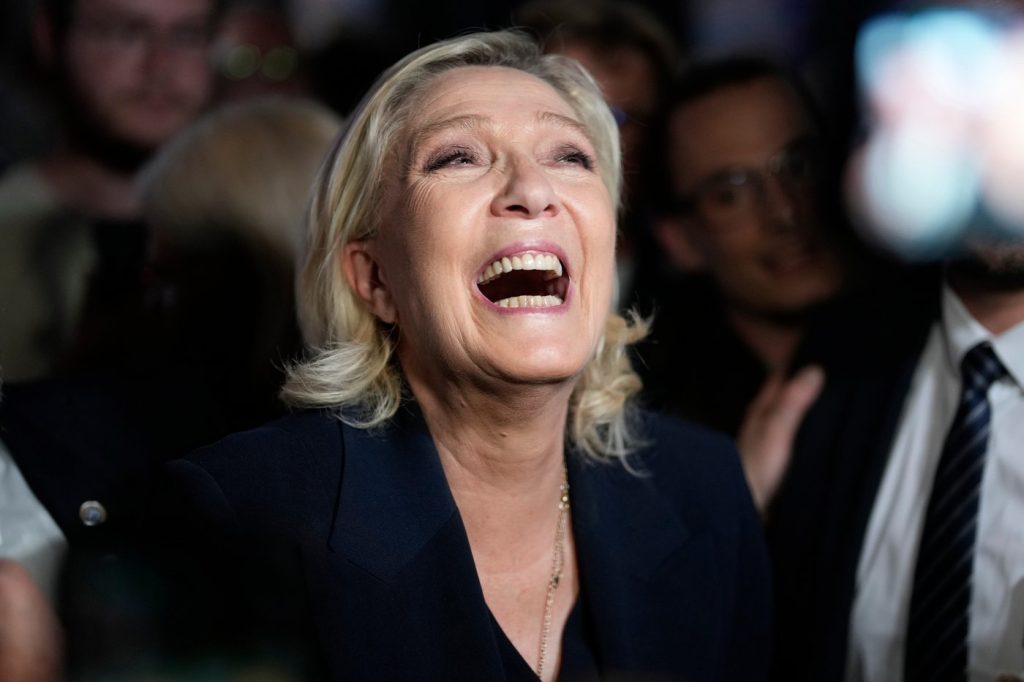PARIS (AP) - On May 7, 2017, Emmanuel Macron, the newly elected president of France, promised to win over the supporters of his rival, Marine Le Pen, who secured a significant 10,638,475 votes. This marked the National Front party's best-ever performance at the polls, previously considered an extreme fringe. In his victory speech, Macron acknowledged the "anger" and "distress" motivating Le Pen's voters, vowing to do everything possible to ensure they had no reason to support extreme politics in the future.
However, since then, Le Pen’s far-right National Rally party has gained momentum, attracting millions of new supporters. Following a rebranding in 2018 to distance itself from the controversial image related to Le Pen's father, Jean-Marie Le Pen, the party has blossomed into the largest in parliament. With France's next presidential and legislative elections set for 2027, the party is positioned closer to power than ever before.
Several factors contribute to Le Pen's rising appeal. One pivotal aspect is Macron's perceived mishandling of poverty and wealth inequality. Reports indicate that since Macron's election in 2017, an additional 1.2 million people in France have fallen below the poverty line. By 2023, the official poverty rate increased to 15.4%, the highest level recorded in nearly 30 years. Critics have labeled Macron as the "president of the rich" after he enacted tax cuts for businesses and diluted wealth taxes in an effort to attract investments.
Regional mapping by the Associated Press reveals a correlation between rising poverty rates and increased support for Le Pen’s National Rally, particularly in poorer regions of France, such as the deindustrialized northeast and along the Mediterranean coast. Social mobility issues and concerns regarding the future have made voters more receptive to Le Pen's nativist and anti-immigrant rhetoric.
Luc Rouban, a researcher at Paris's Sciences Po, notes that Le Pen's rhetoric, similar to "Trump-ism," resonates with voters who feel alienated by traditional political elites. The National Rally promises to cut spending on migrants and redirect funds to help citizens deal with rising living costs, thus appealing to those facing financial challenges. Laure Lavalette, a parliamentary spokesperson for the party, claims that the National Rally is viewed as the protector of the working and middle-class purchasing power.
In legislative elections following Macron's election, the National Rally failed to secure seats. However, post-reelection in 2022, the party gained traction and impressive results in the subsequent electoral rounds, booking a record number of 123 lawmakers in the National Assembly, thus overtaking all other parties.
The 2024 legislative elections revealed the severe fragmentation of France's parliament, leading to unstable minority governments. National Rally's strategy includes leveraging public dissatisfaction for advancements in forthcoming elections. Macron has shown reluctance to dissolve the National Assembly yet again, fearing a possible National Rally prime minister and its ramifications for his presidency. Ongoing discussions suggest that voters are increasingly willing to consider National Rally as a viable option outside the traditional political spectrum, especially given the rising discontent with current governance.
As voter sentiment shifts towards seeking alternatives to mainstream parties, the National Rally’s appeal grows stronger. The situation exemplifies a political landscape in France that is becoming more polarized around issues such as poverty, immigration, and the perceived failures of the current administration.











